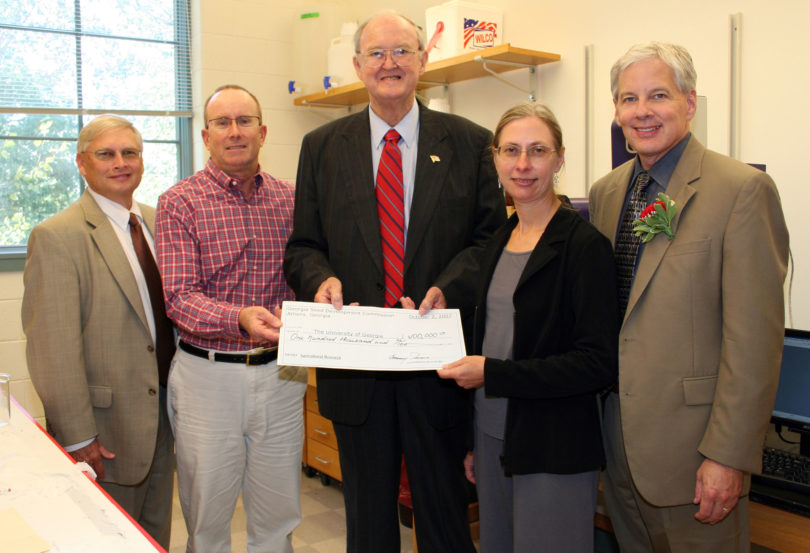Georgia Commissioner of Agriculture Tommy Irvin loves to eat peanut butter and graham crackers. But his grandson has a peanut allergy. So when all of Irvin’s 14 grandchildren come to visit, he makes sure no one comes in contact with peanuts. That’s one reason he presented a $100,000 check from the Georgia Seed Development Commission to UGA’s College of Agricultural and Environmental Sciences. The money will be used to help researchers there develop an allergen-free peanut.
“It’s very challenging to try to eliminate allergens from peanuts,” said Peggy Ozias-Akins, a plant geneticist and horticulture professor based in Tifton. “So far, we’ve been able to greatly reduce one of the proteins identified as a major allergen in peanuts with no obvious detrimental effect to seed viability and development.”
But a modified peanut with the reduced protein still has allergenic properties. She believes the protein may have to be completely eliminated or other proteins not yet researched play a role in peanut allergy troubles.
Steven Knapp, a crop and soil sciences professor based in Athens, is working to build genomics resources to improve peanuts using molecular breeding. He investigates a broad range of economically important peanut traits, such as disease resistance. Both researchers are working to develop an allergen-free peanut.
It takes more than a year to produce a transgenic peanut.
“We are building the infrastructure for applying genomic solutions to breeding problems in peanuts,” he said. “These tools can be applied to a wide range of traits.”
Peanuts are in many foods served in schools and other public places where children with peanut allergies can be exposed to them. Peanuts are among the top 10 agricultural commodities in Georgia with an off-the-farm value of $321 million annually. It helps many farmers put food on their own tables and drives rural economies in certain parts of the state.
“I think it’s a wise investment for the commission, the university and the peanut industry,” Irvin said. “We can’t afford to lose any of our market. . . Wouldn’t it be great if we came up with an allergy-free peanut?”





